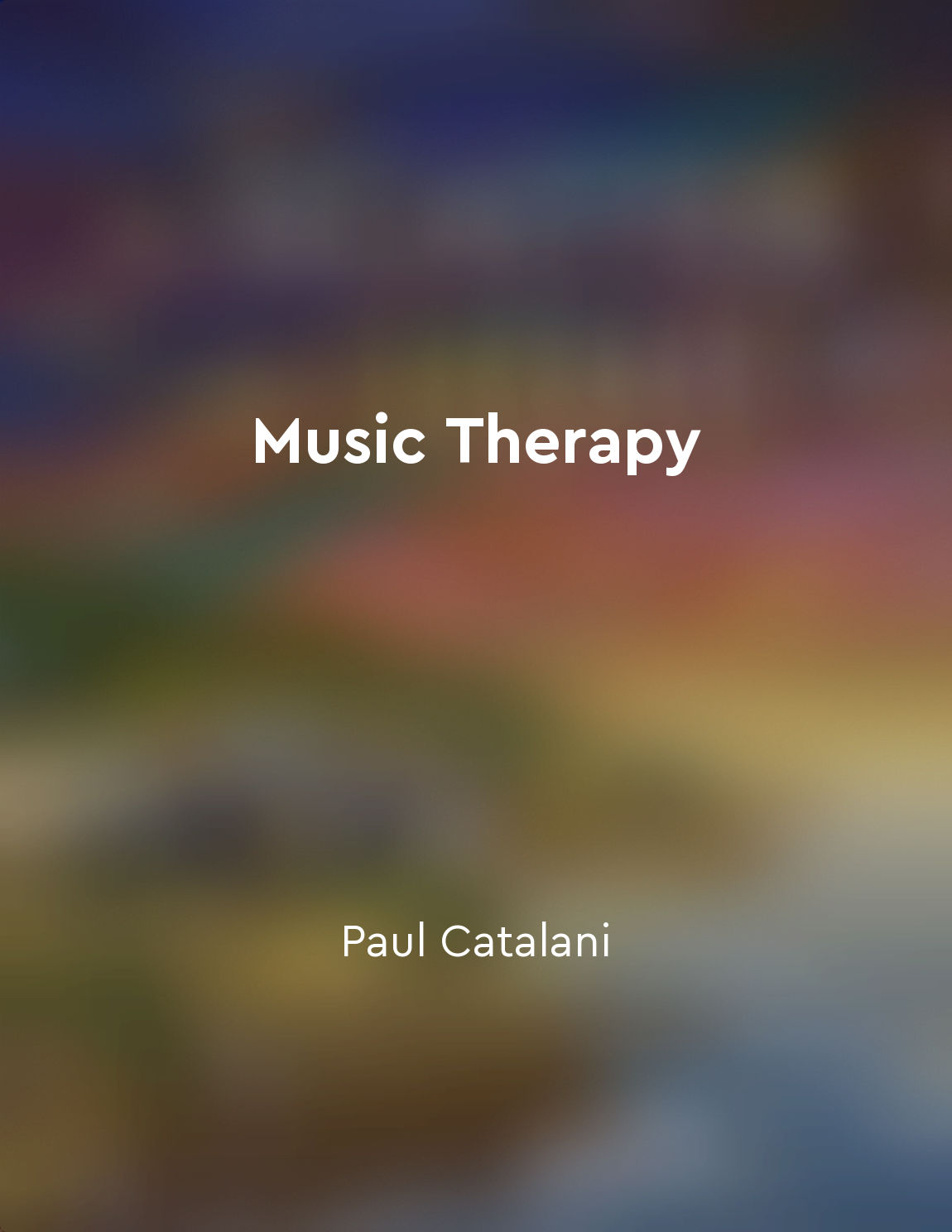Audio available in app
Building trust and rapport through shared musical experiences from "summary" of Music Therapy by Paul Catalani
Building trust and rapport through shared musical experiences is a fundamental aspect of music therapy. By engaging in musical activities together, therapists and clients can establish a strong connection that forms the foundation of their therapeutic relationship. Music has a unique ability to transcend verbal communication, allowing individuals to express themselves in ways that words alone cannot capture. Through the process of making music together, clients are able to feel understood and supported by the therapist, creating a sense of safety and security within the therapeutic space. This shared experience of creating music can lead to a deepening of the therapeutic relationship, as clients begin to trust the therapist and feel more comfortable opening up about their thoughts and feelings. Music therapy sessions often involve a variety of musical activities, such as improvisation, songwriting, and listening to music. These activities provide opportunities for clients to connect with the therapist on a personal level, building a sense of camaraderie and mutual understanding. As clients and therapists engage in music-making together, they are able to develop a shared language that goes beyond words, enhancing their ability to communicate and connect with each other. The process of building trust and rapport through shared musical experiences is an ongoing and dynamic one. It requires therapists to be attuned to their clients' needs and emotions, adapting their approach to meet each individual where they are at. By creating a safe and supportive environment for clients to explore their thoughts and feelings through music, therapists can help them develop a deeper sense of self-awareness and self-expression.- The concept of building trust and rapport through shared musical experiences is a crucial aspect of music therapy. Through engaging in musical activities together, therapists and clients can develop a strong and meaningful therapeutic relationship that supports the clients' emotional growth and well-being. By creating a space where clients feel heard, understood, and valued, music therapists can help them navigate their personal challenges and work towards positive change.


